Buy or gift a stand-alone digital subscription and get unlimited access to dozens of back issues for just £18.99 / $18.99 a year.
Please register at www.exacteditions.com/digital/cornucopia with your subscriber account number or contact subscriptions@cornucopia.net
Buy a digital subscription Go to the Digital EditionZekeriya Turkmen, in the excellent History of Istanbul website, gives a fascinating outline of Kuleli’s history here. Originally built in 1828 (in the aftermath the hurrried demise of the dreadful Janissaries) as the Kuleli Cavalry Barracks, it was reconstructed twice, in the 1830s after a fire, and again by Sultan Abdülaziz in 1863, though the second rebuilding happily looks remarkably similar to the Kuleli we see in Thomas Allom’s 1838 engraving. In 1872, it became a military academy, but it would frequently serve as a hospital in time of war, and was used as a quarantine station between 1837 and 1842 – an inspired campaign that saved thousands of lives.
Life in this handsome twin-towered waterside officers’ academy on the Asian shore is evocatively described in Portrait of a Turkish Family, by Irfan Orga, who studied there in the 1920s. Here he recalls the view from the hill, then in countryside, above the school, where he took himself off with his text books.
‘Sometimes tiring of study, I would lean against my particular fir tree and look down upon the Bosphorus shining cooly below me. There was a good view from that tree, I remember, right down the Bosphorus to the Black Sea. Little Bebek was in front of me in all its shimmering morning beauty. If I turned my head a little to the right, I could see the famous fortress walls on the Asiatic side [Anadolu Hisarı]. Turning back again to Istanbul, I could see that other fortress, the old crumbling fortress built in 1452. The parts of it that were visible from my tree were the narrowest parts of all, being little over 649 metres. In connection with this there is a story which says that the Sultan Mehmet once approached the Emperor Constantine and asked to be granted a piece of land on the European side. Constantine, it appears, acceded to this request, stipulating that the land be only the size of a cow’s skin. So the Sultan Mehmet took a raw cow’s skin, had it cut into narrow strips, and then laid them end to end, building his fortress according to those measurements. And no matter how the emperor protested, he always told the one thing: that the land only measured ust so much as a cow’s skin.
‘And all down the Bosphorus, down, down to the Black Sea, ran the tall trees and the old wooden houses that suited the skyline so well. If I turned my head to the left, there on the hilltop I could see the Dolmabahçe Sarayı, white and artificial as a wedding cake in its peaceful setting. Miniature mosques fronted the water’s edge, and at the end of all the shining palaces lay Istanbul – my Istanbul, which will forever hold something of my heart. Gray it appeared from the hill, and the smoke from the boats lay over it like a soft veil. The minarets that enchanted the skyline were tall and tapering, and from my hill I could see, behind the mosques, the Marmara like a faint line of thread.’
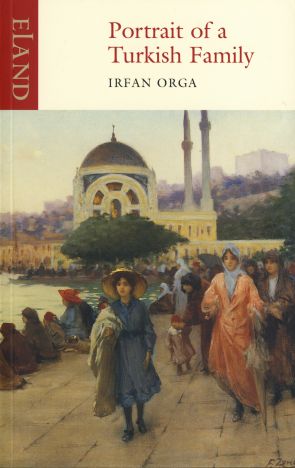
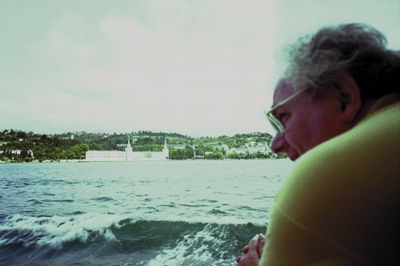
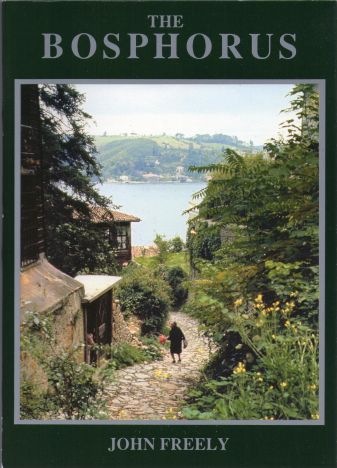
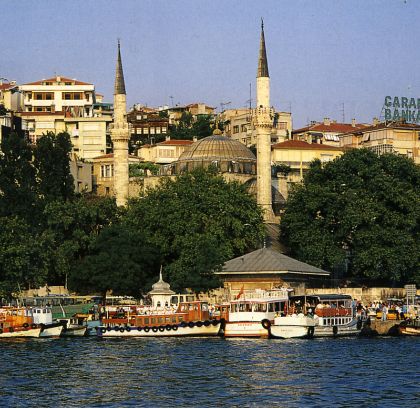
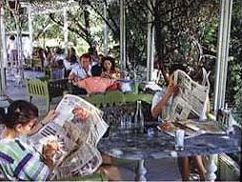
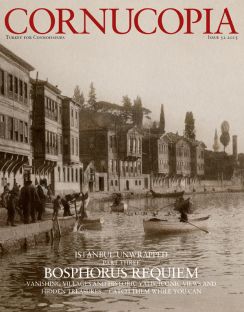
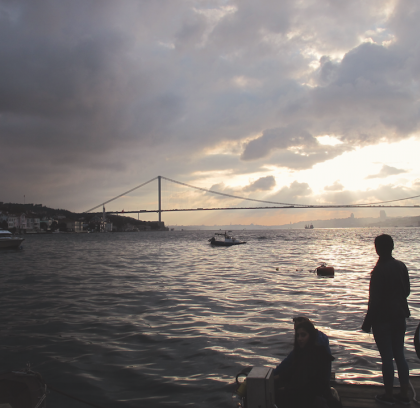
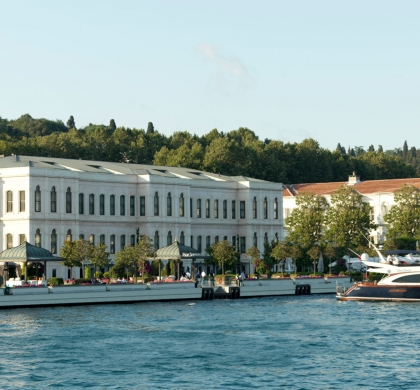
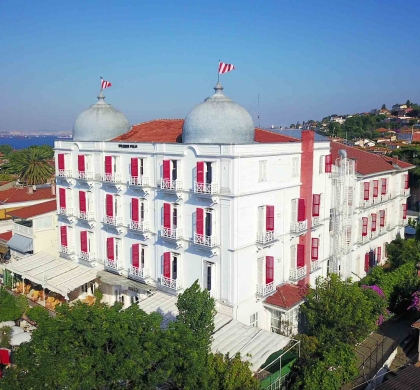
 Issue 66, December 2023
Turkey’s Centenary Issue
Issue 66, December 2023
Turkey’s Centenary Issue
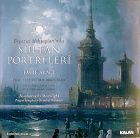
The Prague Symphony Chamber Orchestra with Cihat Askin, violin. Directed by Emre Araci and produced by Ateş Orga

Cornucopia works in partnership with the digital publishing platform Exact Editions to offer individual and institutional subscribers unlimited access to a searchable archive of fascinating back issues and every newly published issue. The digital edition of Cornucopia is available cross-platform on web, iOS and Android and offers a comprehensive search function, allowing the title’s cultural content to be delved into at the touch of a button.
Digital Subscription: £18.99 / $18.99 (1 year)
Subscribe now